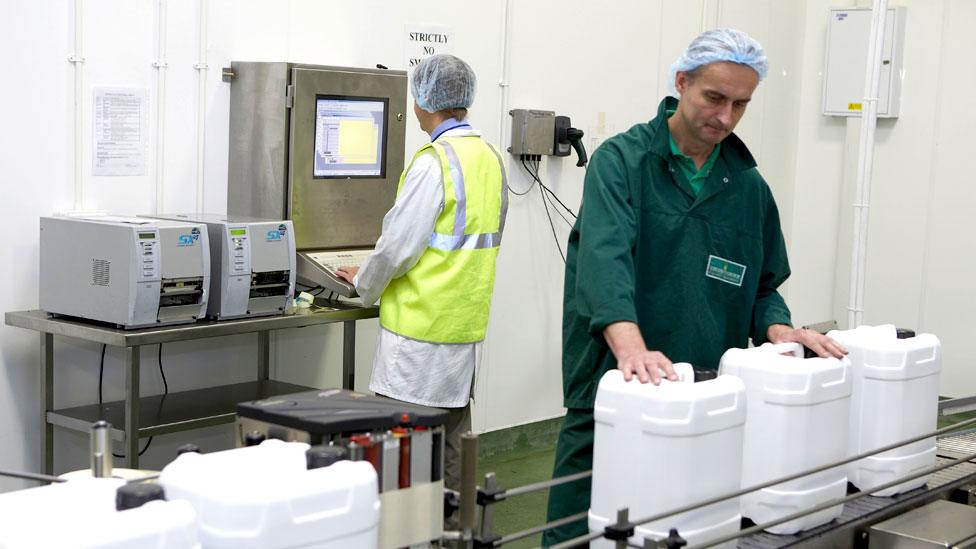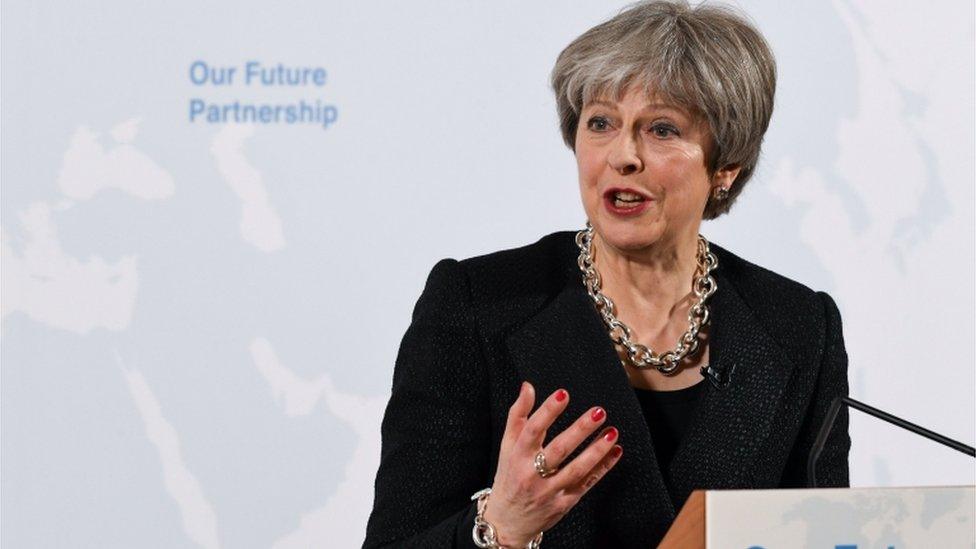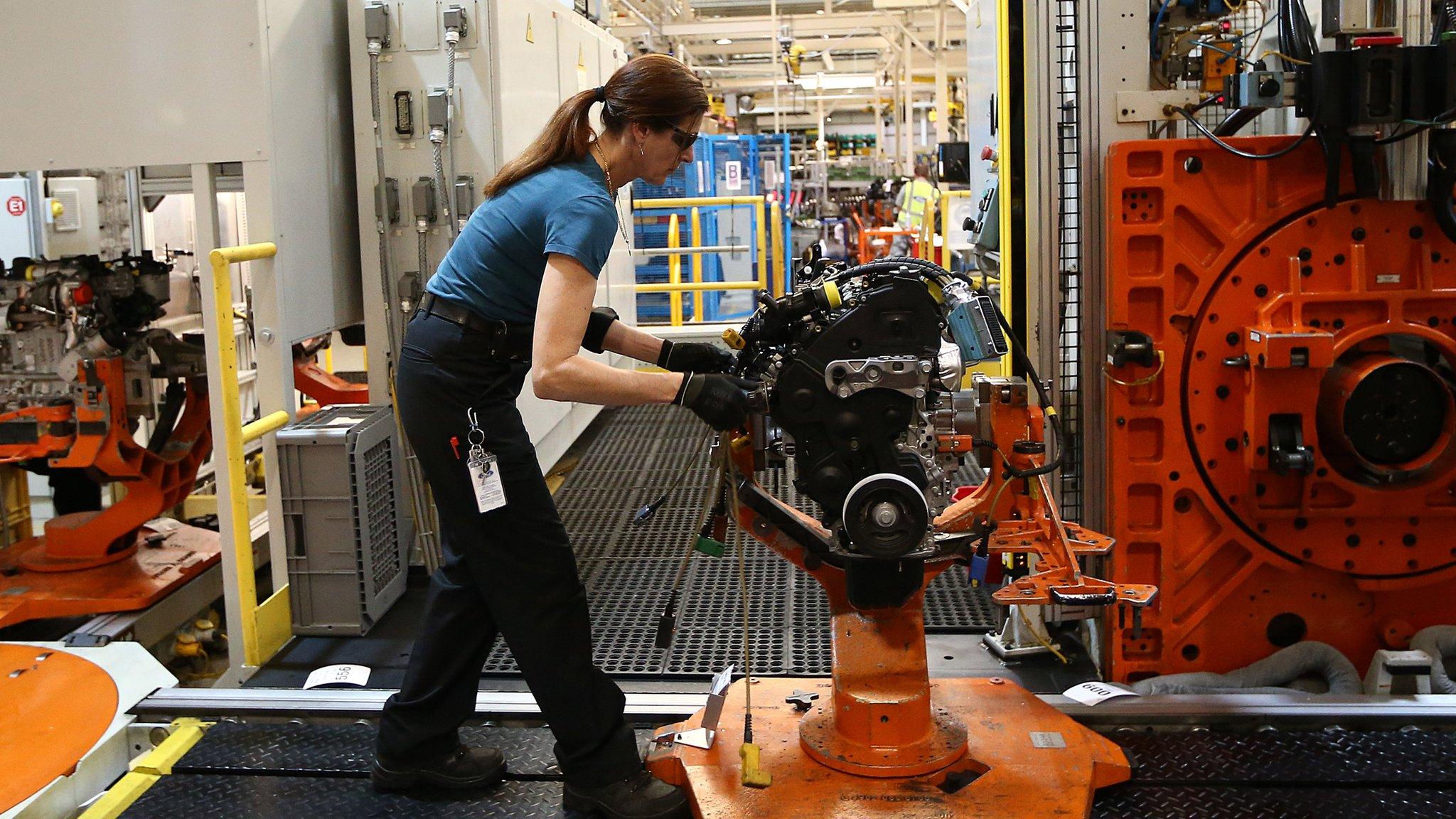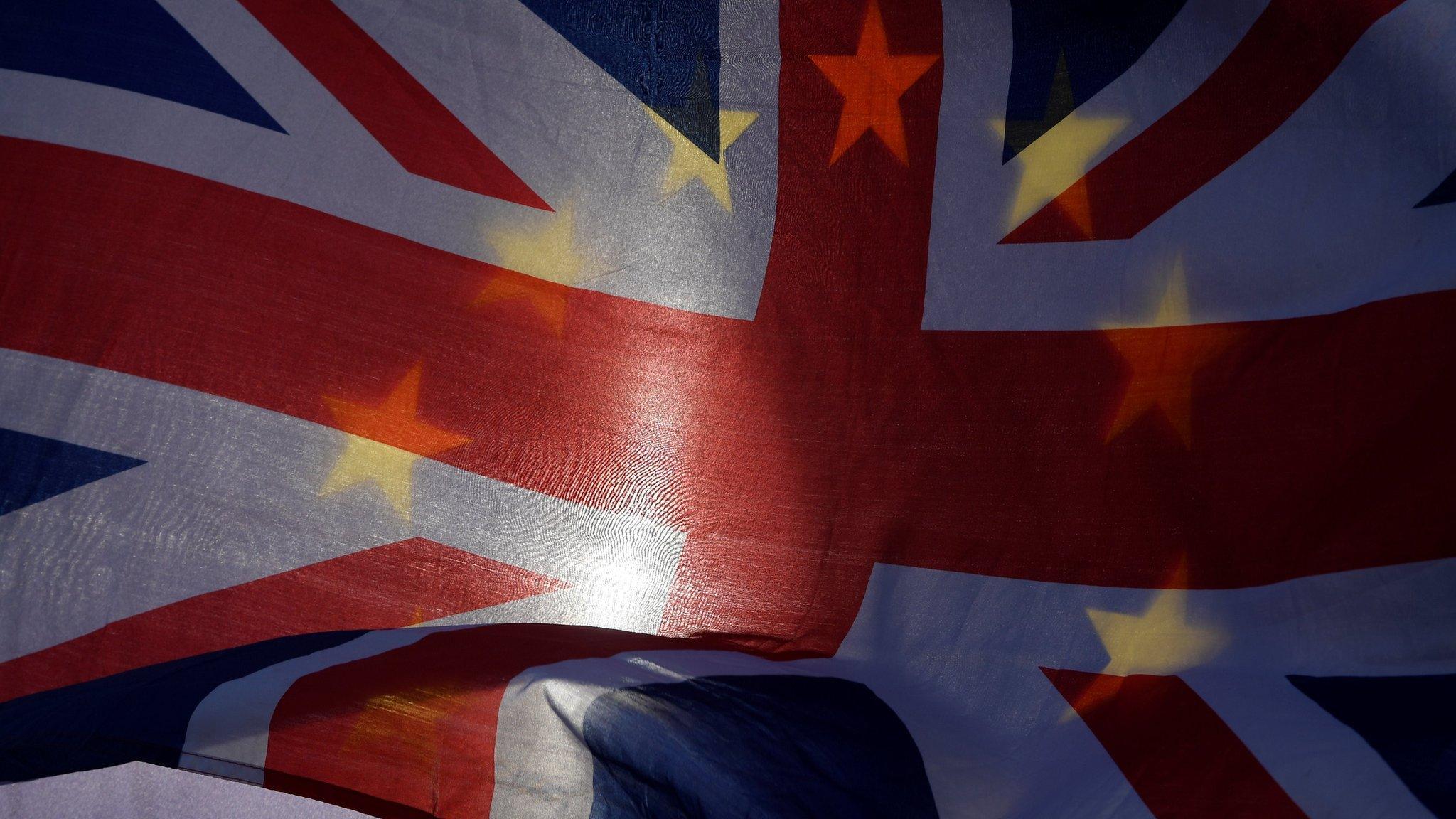Brexit study warns over chemical industry
- Published

The UK's chemicals industry could be particularly hard hit by leaving the EU customs union, according to Whitehall's own analysis.
The paper, published by the Exiting the EU committee, points out the sector is "highly reliant" on EU supply chains.
New customs declarations would lead to "significant non-tariff barriers" to trade, it says.
The UK government wants to come out of the customs union after Brexit, so the UK can strike its own trade deals.
The document, EU Exit Analysis - Cross Whitehall Briefing, has been published, external after being leaked to news website Buzzfeed in January.
'Foundation industry'
It looked at scenarios ranging from leaving with no deal to remaining within the EU single market, after the UK leaves the EU on 29 March 2019.
But it emphasises the difficulties in providing a definitive analysis, as the deal the prime minister wants to strike with the EU is not an "off the shelf" free trade agreement, so there are no precedents to work on.
The UK's chemicals industry is its second largest exporter to the EU after the automotive industry and the second biggest manufacturing industry overall.
The analysis points out that it is "an important foundation industry for other sectors" - for example, the manufacture of medicines - as well as being used by the technology, energy, automotive and aerospace sectors among others.
'Highly reliant'
But the report says that all manufactured goods face the prospect of "significant non-tariff barriers" - obstacles to trade - if, as expected, the UK leaves the customs union.
The chemical industry is "highly reliant on EU supply chains" it says, and chemicals and components can cross borders several times during processing and assembly.
The Whitehall analysis also suggests that, after Brexit, chemicals manufacturers could end up having to transfer more than 9,000 registrations to the EU in order to keep selling those chemical products there.

Mrs May said she wants to explore the possibility of the UK remaining part of the European Chemicals Agency
New chemicals could end up having to be registered twice - in the UK and EU - with a big additional cost as standard registration fees vary from 1,700 euros (about £1,500) to 34,000 euros (about £30,300).
Open Britain, which is campaigning for close ties with the EU after Brexit said the report showed leaving the customs union and single market would be "a disaster for Britain's chemicals industry".
Labour MP Mary Creagh, who backs the group, said: "Tariffs would be a burden, but it is non-tariff barriers that threaten to do the most damage.
"If [Brexit Secretary] David Davis signs up to any deal that imposes regulatory customs barriers on British chemical industry he will be putting 500,000 direct and indirect jobs in jeopardy along with billions of pounds of investment."
'Appropriate contribution'
Steve Elliott, chief executive of the Chemical Industries Association, said on Thursday: "What we now need is the negotiators to get on with negotiating. Only when that progresses will we know what's really going to happen."
In her Mansion House speech last week, Theresa May said the UK wanted to explore "the terms on which the UK could remain part of EU agencies such as those that are critical for the chemicals, medicines and aerospace industries".
These included the European Chemicals Agency (Echa) regulatory authority, with the prime minister saying the UK would accept "abiding by the rules of those agencies and making an appropriate financial contribution" in return for products which are destined for export only needing to get one set of approvals, in one country.
The Chemical Industries Association welcomed Mrs May's announcement last week but reiterated its demand for "regulatory consistency" when Brexit happens.
It also wants UK officials to continue to be involved with Reach - the EU chemical regulations framework - to avoid "duplicate testing and related costs" and protect 10 years of investment in Reach by UK chemical industries.
Reach requires all companies manufacturing or importing chemical substances into the EU over a certain quantity to register these substances with Echa.
- Published8 February 2018

- Published30 January 2018
